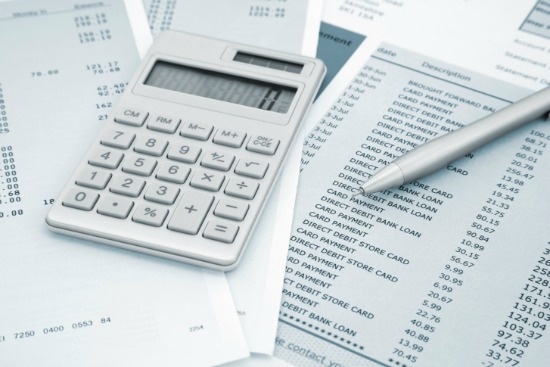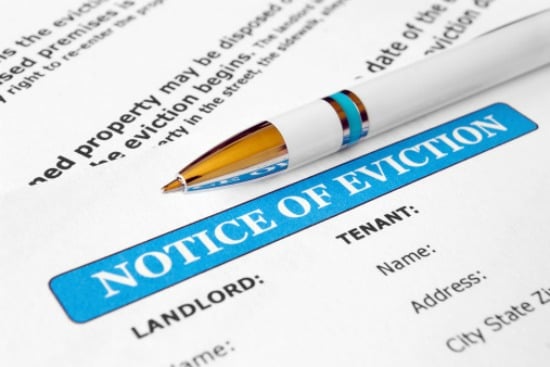Have you ever considered the fact that owning a rental property may not be a safe investment, as you may have been told?
If not, it is time you started.
This is not to dissuade you from wanting to invest in rental properties. In fact, it is far from it. The important takeaway here is the realization that investment properties have their financial downsides that can ruin any profit you hope for.

Investment properties are concentrated assets, have no liquidity, and let’s be honest, dealing with tenants can be a major hassle sometimes.
However, understanding the risk you take on when investing in rental properties, and properly preparing for them, can safeguard a lot of your annual rental property income and prevent major headaches as you continue your journey as an investment property owner.
Let’s take a look at 5 ways investment properties can break your financial gains and ways you can lessen the impact of this negative cash flow.
1. Start Up Costs
Obviously you must put a sizable amount of money into a rental property investment initially. Whether you purchase a property using all cash, use equity from your primary residence, or partake in any of the other creative options that are available for financing rental properties, money will be involved somehow.
The problem is that a lot of landlords don’t consider costs beyond the basics of mortgaging a property when they start out in the rental property business. Things such as general renovations and repairs, housing code improvements, homeowners’ insurance sign-ups, and property management fees can creep into your initial start-up costs quickly, and without too much notice.
Solution – Conduct research about property costs in your area and create a budget before investing in a property. Allot funds for start-up costs, among other things in a special account so that you know you are covered no matter what happens.
2. Keeping Your Property (and Tenants) Safe
Not only is it important that you protect your property from damages and maintain a habitable home for your tenants, you must also protect yourself from future lawsuits in the case of an injury on your property.
Sure, you may require your tenants to have renters’ insurance and your homeowners’ insurance will cover structural damage due to things like a fire or flood.
But what about personal injury claims that occur on your property?
Routinely inspecting your home for a potential hazard is just as important as knowing the local building and safety code requirements in your area. The last think you want is a major liability on your hands that lands you in the courtroom face-to-face with an injured tenant.
Solution – Before leasing your property to any tenants, review your homeowners’ insurance policy for coverage regarding personal injuries that occur on your property, regardless of whether it is a result of your negligence or not. You are better safe than sorry having a little bit of extra coverage to prevent costly court expenses in the future.
3. Managing Finances
One misconception many landlords have is that the rental property business is all profit. The truth is, rental rates fluctuate, vacancies occur, tenants fail to pay on time, and repairs can hit you hard. Plus, with all this income coming and going (along with the many tax deductions you will surely want to take advantage of come tax time), you will quickly find yourself in need of an accountant and their services are not cheap.

There will be times when your rental property does not produce the income you were expecting. If you fail to save money for emergency situations, you many find yourself experiencing severe financial strain.
Solution – Again, budgeting and managing your finances for periods of time when income is lower than expected is the key to staying ahead. When it comes to the rental property business, avoiding financial down times is impossible. However, by being prepared for times of negative cash flow (i.e. having an emergency savings), you will definitely lessen the financial impact.
4. Tenant Risk
Tenants can mess with your positive cash flow in two major ways: non-payment of rent and damage to your property.
Sometimes, you will get lucky and land a long-term tenant that never fails to pay rent on time. On the other hand, the longer you are a landlord, the higher the chance becomes that you will run into a tenant that pays late (which is a financial annoyance) or worse, fails to pay at all (at the expense of your steady income).
You are bound to come across a tenant ot two that “wears” on your property more so than others, which again, cuts into your annual profit. There is always the security deposit that can be used to repair any damage beyond normal wear and tear, but if your tenant’s damage falls within the normal range, you are financially out of luck.
Solution – Tenant screening is crucial to getting high-quality tenants in your rental home. Not a guarantee for on time or full-rent payments, but good tenant screening definitely helps prevent that situation from occurring in the first place. In addition, you should outline in the lease agreement what maintenance and repairs your tenants will be responsible for so when it comes time for them to leave, your property is in the best condition possible.
5. Surviving Evictions
Is is a sad day when a landlord is forced to evict a problem tenant. The financial impact an eviction has on a landlord can be serious.
It is probably that your state’s landlord and tenant laws make it seem as though evictions are a hassle-free and easy procedure when a tenant in you rental property has done something to warrant eviction. However, in reality, evictions can be complicated, incur major expenses, and cause a significant loss in your personal time. Plus, while you are dealing with a problem tenant, time is being taken away from you leasing your property to quality tenants that will pay on time which results in a significant loss of income.

Solution – There are many things you can do as a landlord to prevent, or at least lessen, the financial damage done by an eviction proceeding. Proper tenant screening, solid lease agreements, a property management team experienced in eviction procedures, and even reasoning with a tenant before eviction becomes necessary can save a lot of time and money in the long run.
Owning a rental property can be an effective way to accumulate extra income. Yet, there are also many factors that can contribute to a negative cash flow.
One excellent way to help alleviate some of the financial strain owning an investment property can have on your bottom line is to hire a quality property management team such as Bay Management Group. Dealing solely in property management, Bay Management Group can properly screen tenants, conduct routine inspections to check on your property, enforce timely rent collection procedures, and aid in the case of any lawsuit related to your investment property, evictions included.
With Bay Management Group, you many not be able to avoid all the ways your invest property can break your financial gains, but at least you will be able to cushion some of the fall along the way. Contact them today and rest assured that your property, and money, will be well cared for.
